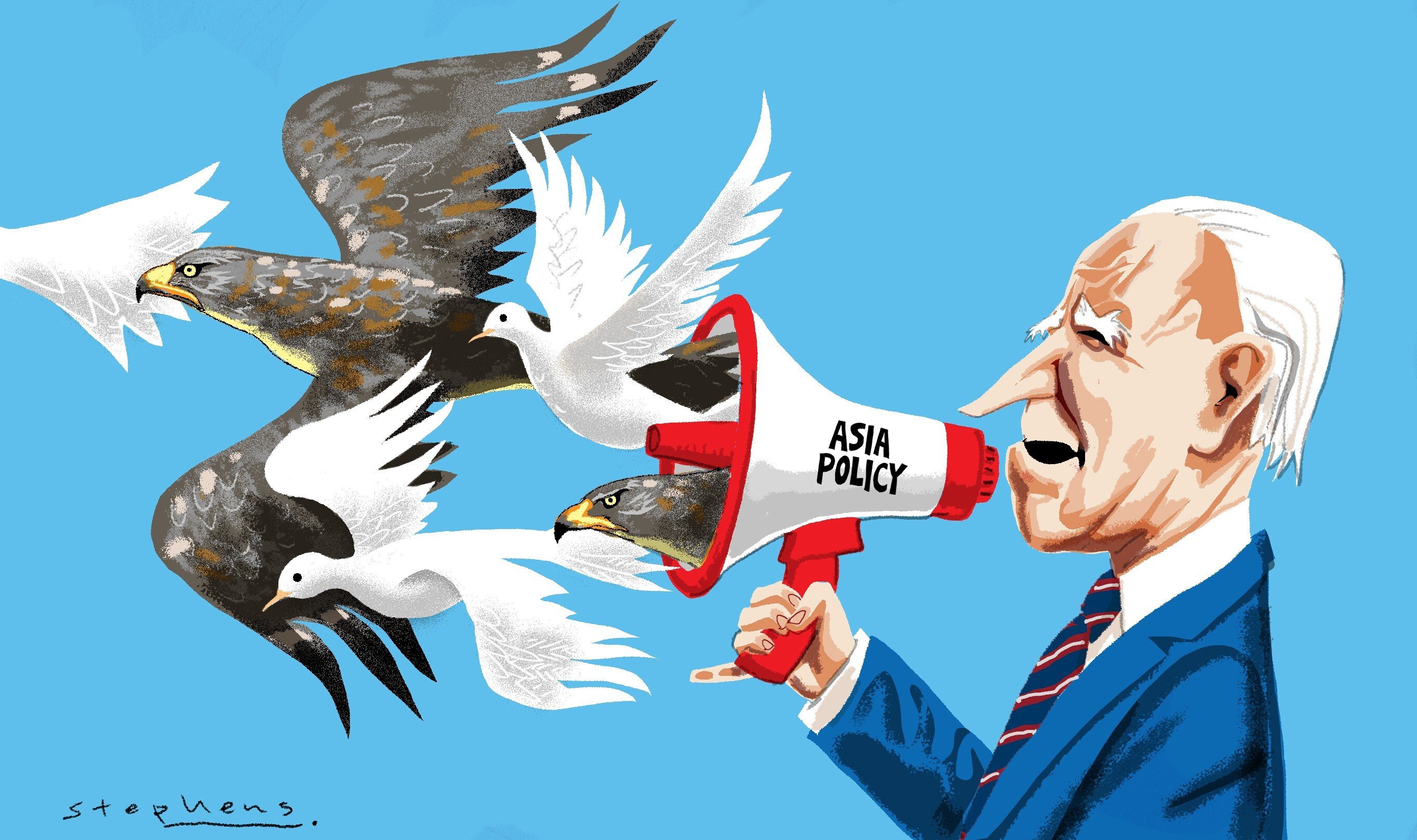The Ripple Effect of the Afghanistan Withdrawal
(South Korea) on 22 September 2021
by Hwang Sungki (link to original)
What could possibly have been on the minds of the Pyongyang leadership as they watched U.S. troops hurriedly departing from Kabul? Some say they might have felt a sense of achievement, as if they had won against the U.S. and South Korea without shedding a single drop of blood. Other experts say there are fundamental differences between the fall of Saigon in 1975 and the Taliban occupation of Kabul in 2021, which gives North Korea little reason to rejoice at the U.S. withdrawal. Either way, North Korea’s moderation makes it possible to speculate that Pyongyang is carefully evaluating the impact Afghanistan will have on the Korean peninsula.
It is generally considered that U.S. global strategy after Afghanistan will prioritize responding to growing Chinese threats and strengthening its military influence in the Indo-Pacific region. A Congressional Research Service report about the new “U.S.-China Strategic Competition,” released about 15 days prior to the Aug. 31 withdrawal deadline, clearly shows the U.S. has begun to move on from regional conflicts in the Middle East and Central Asia to focus on placing a check on China and Russia. In light of this new global strategy, it seems the withdrawal from Kabul was not the end of a failed operation; rather, it was the beginning of a large-scale redeployment plan to bring troops where their presence is needed more.
It is almost certain the U.S. will increasingly pressure its allies in Europe, the Indo-Pacific and Northeast Asia in the coming years. As the U.S. decreases the frequency of direct interventions in favor of its national interest, it will place greater importance on its democratic allies for U.S.-China competition. This explains why the U.S. has immediately denied concerns about a similar fate looming upon U.S. Forces Korea after the Afghan withdrawal. While it doesn’t eliminate the possibility of USFK undergoing size adjustments, it signifies that there will be no withdrawals of U.S. troops that North Korea has long demanded. In fact, the U.S. will most likely make South Korea take on a greater role. It will demand allies like South Korea, Japan, Australia, India, New Zealand and the Philippines to fill in the power vacuum created by its withdrawal. AUKUS is one such example.
Judging from current trends, it is highly likely that the alliance between the U.S. and South Korea will become stronger regardless of who becomes the next South Korean president. While South Korea-China relations will be affected by U.S. demands to participate in its anti-Chinese grand strategy, it does not seem likely for China to exclude South Korea from its list of strategic cooperation partners based on how it has traditionally regarded South Korea. South Korea must have a greater leverage against China if it is to strengthen its relation with the U.S., and its new administration must approach the U.S. and China with even greater diplomatic precision.
The real challenge is denuclearization. As the U.S.-China strategic competition intensifies, the matter of North Korea’s nuclear armament may become difficult to resolve. Presently, China is the only country that can facilitate U.S.-North Korea relations, as it has repeatedly declined to partake in talks with the U.S. or South Korea. It is true North Korea has humiliated Chinese Foreign Minister Wang Yi by launching a ballistic missile during Wang’s visit to South Korea. However, China’s influence over North Korea cannot be taken lightly. China may offer chances of multilateral negotiations in exchange for political concessions, emphasizing that it is the only one capable of bringing North Korea to the negotiating table.
The U.S. is aware of the importance of China’s role in North Korea’s denuclearization. However, it will not strive to obtain Chinese cooperation at the expense of its own interests. If tensions between the U.S. and China begin to escalate and lead to larger conflicts, it is possible the U.S. may no longer consider North Korea’s denuclearization as a strategic priority.
The impact on the Korean Peninsula of the withdrawal of U.S. troops in Afghanistan, especially on its denuclearization process, is more negative than positive. There are signs that the U.S. is returning to the policy of “strategic patience” of the Barack Obama era. The unstable peace of the past four years may be broken after COVID-19. If North Korea insists on being recognized as a nuclear weapon state and refuses to abandon its nuclear program, it may prolong the worst-case scenario: a series of sanctions “trapping” North Korea and further discouraging it from being involved with the rest of the world.
North Korea should develop a flexible strategy to engage with the U.S., but avoid actions that may create difficulties for itself, such as reoperating nuclear facilities or launching strategic weapons. South Korea should use the time following its upcoming presidential election wisely. The two Koreas must work together to advance their relations more so than they did in the Pyeongchang Olympics of 2018. Convincing the U.S. and resuming the denuclearization process will be the only solution.


